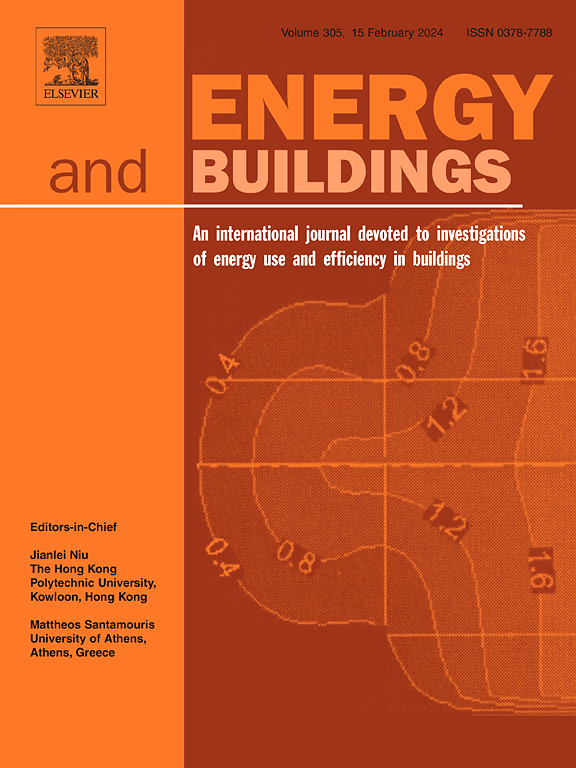多源热泵系统的高级控制:多准则协调的田口实验设计与熵权法的协同
IF 7.1
2区 工程技术
Q1 CONSTRUCTION & BUILDING TECHNOLOGY
引用次数: 0
摘要
在全球建筑脱碳的大背景下,多源热泵系统面临着多目标优化的技术挑战,包括评价框架的主观权重分配和实验验证成本高。本研究创新性地将田口法与熵权法相结合,提出了一种新的田口-熵权协同方法,解决了多源热泵运行中动态能量耦合的复杂性问题。利用熵权法。建立动态综合评价指标(CEI)。该指标量化了非均质热源(太阳能、污水源和燃气锅炉)的能源、经济和环境效益,克服了传统方法在处理多源动态切换、多目标冲突和时变权重分配方面的局限性。田口正交实验设计降低了实验成本,同时揭示了热源切换延迟的核心机制(对CEI的贡献为93%)。优化后的参数组合使CEI提高了6.73%,形成了多源能源系统的可转移控制策略范式。该方法通过系统地平衡技术可行性、经济效率和环境可持续性,为推进建筑脱碳提供了一个可重复使用的优化模型。本文章由计算机程序翻译,如有差异,请以英文原文为准。
Advanced control of multi-source heat pump systems: Synergizing Taguchi experimental design with entropy weight method for multi-criteria coordination
Against the backdrop of global building decarbonization, multi-source heat pump systems face technical challenges in multi-objective optimization, including subjective weight assignments in evaluation frameworks and high experimental validation costs. This study innovatively integrates the Taguchi method and entropy weight method to propose a novel Taguchi-entropy weight collaborative methodology, addressing the complexity of dynamic energy coupling in multi-source heat pump operations. The entropy weight method is leveraged. A dynamic Comprehensive Evaluation Index (CEI) is established. This index quantifies the energy, economic, and environmental benefits of heterogeneous heat sources (solar, sewage-source, and gas boiler), overcoming limitations of traditional methods in handling multi-source dynamic switching, multi-objective conflicts, and time-varying weight allocation. The Taguchi orthogonal experimental design reduces experimental costs while revealing the core mechanism of heat source switching delay (93% contribution to CEI). The optimal parameter combination achieves a 6.73% CEI improvement, forming a transferable control strategy paradigm for multi-source energy systems. This method provides a reusable optimization model to advance building decarbonization by systematically balancing technical feasibility, economic efficiency, and environmental sustainability.
求助全文
通过发布文献求助,成功后即可免费获取论文全文。
去求助
来源期刊

Energy and Buildings
工程技术-工程:土木
CiteScore
12.70
自引率
11.90%
发文量
863
审稿时长
38 days
期刊介绍:
An international journal devoted to investigations of energy use and efficiency in buildings
Energy and Buildings is an international journal publishing articles with explicit links to energy use in buildings. The aim is to present new research results, and new proven practice aimed at reducing the energy needs of a building and improving indoor environment quality.
 求助内容:
求助内容: 应助结果提醒方式:
应助结果提醒方式:


